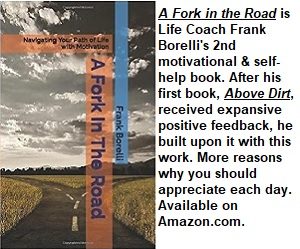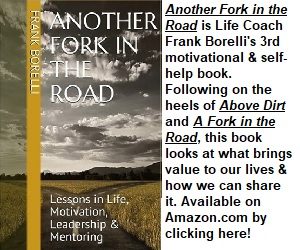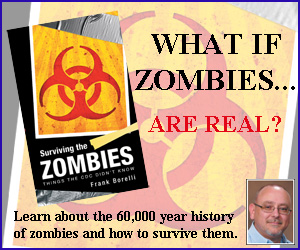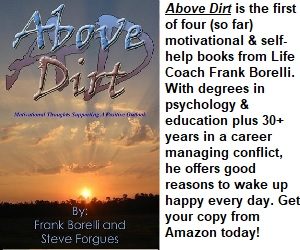This entry is a combination of an updated version of two blogs I wrote about 15 years ago. They have to do with reliance, self-reliance and how America’s original values (at our founding) may be related to them. These have been edited only to make them current-society appropriate.
– – – – – – – – – –
What or who do you rely on? As I type this, the TODAY show is running various “human interest” stories that they are revisiting from within the past decade. Virtually every story boils down to this: someone somewhere showed courage, patience or endurance under extremely stressful, dangerous or otherwise trying circumstances and they’re being recognized for it. Now, please note: nowhere in that sentence did it say anything about heroic technology, courageous computers, wondrous GPS trackers, or any other such techno-wonders of the modern world. These stories are all about people and the strengths they display. There’s a lesson to be learned there.
What lesson? Quite simply that when all else fails, the human spirit can not only endure but emerge victorious. Now I know I’m probably preaching to the choir, but have you ever wondered about our dependence on technology and just how silly we get with it at times?
I have a friend who has a GPS unit that he never travels without. That’s cool. I know how handy they can be. That said, those GPS units depend on layers of technology that start at the electrical system in your vehicle and ends with satellites; that’s plural: SATELLITES. Nothing ever goes wrong with them, or even could, right? Somewhere in that line of technology is a PERSON who is loading maps into a software program so that this wondrous technology can tell you where to go.
 First off, my wife tells me where to go enough that I certainly don’t want to hear it from a machine. Second, while the software can see construction, road closures, radar enforcement and more, it still can’t see some things like natural disasters, broken down vehicles, etc. So what happens when any particular piece of that technology chain is broken? That’s right… it’s WORTHLESS. At that point you need to have a map, a compass and a decent idea of how to navigate. Now I’ll freely admit that land navigation wasn’t my strongest skill during my military career, but I can read a map; I can tell the difference between the four (or eight, or sixteen) points on a compass. I can recognize landmarks. I may not get to my destination on the fastest most efficient route, but I WILL get there. How do people do that who have always been so dependent on their technology that they can’t read a map?
First off, my wife tells me where to go enough that I certainly don’t want to hear it from a machine. Second, while the software can see construction, road closures, radar enforcement and more, it still can’t see some things like natural disasters, broken down vehicles, etc. So what happens when any particular piece of that technology chain is broken? That’s right… it’s WORTHLESS. At that point you need to have a map, a compass and a decent idea of how to navigate. Now I’ll freely admit that land navigation wasn’t my strongest skill during my military career, but I can read a map; I can tell the difference between the four (or eight, or sixteen) points on a compass. I can recognize landmarks. I may not get to my destination on the fastest most efficient route, but I WILL get there. How do people do that who have always been so dependent on their technology that they can’t read a map?
About two decades ago I started scuba diving. I was taught how to figure out my nitrogen load using the dive tables. At that time the wheel was just being released and taught (If you’re not a diver it’s hard to explain). These days the tables are just barely touched on and people are taught to depend on dive computers. Sure… another piece of technology dependent on some programmed segment of software that is different for nearly every make and model of dive computer. In this case, a piece of technology you quite literally trust your life to. And if your computer dies while you’re in the midst of a dive? Dive’s over. So is your dive day for that matter unless you can resurrect the information or have redundant depth and dive time tools (which every diver should).
It never ceases to amaze me how people blindly trust technology. Don’t they realize that they are blindly trusting every person and program that has touched that tech? I am reminded of the line in the movie Armageddon voiced by Rock Hound: “You know we’re sitting on four million pounds of fuel, one nuclear weapon and a thing that has 270,000 moving parts built by the lowest bidder. Makes you feel good, doesn’t it?“
The easiest way may not always be the most reliable way. The more you depend on technology the more your existence plays out at the will and whim of others. Trust in yourself. Trust in the competent man or woman standing next to you. Trust in simple tools that don’t require software, programming, or an engineering degree to diagnose problems with. Learn how to do for yourself. Chances are that one day… someday… you’ll likely be put in a position of having to do for yourself without all that whiz-bang technology our contemporary society seems incapable of functioning without.
Even Rambo knew that the best weapon is the mind. And I’ll leave you with another quote from one of my favorite authors, Dean Koontz: “Intrepid expeditions through exotic lands and across strange seas are the quests of crawling children compared to the adventures waiting in the eight inches between the left ear and the right.“
Hang tough. Stay safe.
– – – – – – – – – –
Self-Reliance
I was just recently working on some articles for a patriotic publication, one of which inspired me to consider the differences between our current American population and that of our country 200+ years ago. Then I had to admit to myself that there are big differences between our society of today and that of only fifty years ago. Obviously, there are some fantastic changes that have occurred. Increased equality between genders, races and other demographics is an obvious positive change. Increased convenience in our lives is appreciated and taken advantage of. The other side of this equation is that with increases in the ease of our daily lives and needs I have to wonder if some Americans haven’t “gotten soft.” Have we come to take the conveniences of life so much for granted that we’ve conditioned ourselves into being incapable of being self-reliant?
 Yes, I know I sound like I’m losing my mind, but think about it. What was life like for those men and women who founded our great nation 245+ years ago?
Yes, I know I sound like I’m losing my mind, but think about it. What was life like for those men and women who founded our great nation 245+ years ago?
Take a few of the daily simple things we don’t even think about.
- Your first stop each morning is the bathroom where you use the toilet and sink, never even thinking about the convenience of indoor plumbing or hot water provided on demand.
- You flip a light switch and don’t even think about the electricity flowing nor the lightbulb that brightens.
- You pour your first cup of coffee from the automatic drip coffee maker that you set up the night before; that turned on automatically; that will turn off automatically after an hour or so.
- You reach into your refrigerator to pull out your milk or cream for the coffee, never even thinking about the electricity running the refrigerator, nor the technology involved in producing that artificial cold.
- You put two slices of processed bread into your toaster, push down the lever and move on to cook the rest of your breakfast in the microwave.
- You go look in your pantry to figure out what you’ll make for dinner after you get home from work, and your choices span everything from vegetable side dishes to dry-stored pot roast meals.
- Not happy with your choices in the pantry you look in your freezer and select a prepared meal that is entirely contained in a package that it is shipped in, stored in, cooked in and poured out of into a dish for serving.
- After breakfast you put your dirty dishes into the dishwasher, never thinking about having to wash them by hand if you didn’t have such a convenience.
- You return to your bathroom to shave with your multi-micro-edge razor or, better yet, your electric razor.
- You shower, once again not even thinking about the hot water or your adjustable shower head.
I could go on throughout the day, but I think you get the hint. SO MUCH of what we use every day is provided for us by technology, electricity, indoor plumbing, etc. None of us really think about it unless there is a power outage, severe storm, or other event that forces us to live without any of these conveniences. And even then, many of us (myself included) have a gasoline powered generator that will produce electricity so we can keep our refrigerators, freezers and perhaps heating equipment running. A few of us have wood stoves so that we can at least heat our homes, cook and heat water without having to have that generator running. I would submit to you that something like the presence of a wood stove is just one step toward self-reliance capability. It is not the end all be all and certainly doesn’t address every need.
 Self-reliance should, at a minimum, exist to a sufficient extent that we can each provide for our own basic needs:
Self-reliance should, at a minimum, exist to a sufficient extent that we can each provide for our own basic needs:
Shelter
Food
Clean water
Most of us have homes so shelter is easy. However, that shelter has to be maintained to properly keep the elements out and balance our living environment into a survivable, if not comfortable, interior. Temperatures between 50 – 80 degrees Fahrenheit are “the norm”. Below 50 and hypothermia can become a quick reality. Above 80 and, depending on your activity level, heat exhaustion and heat stroke can become possibilities. During the day you may want or need LOTS of air circulation in your home. At night you might want or need to minimize it. Can you? Sure, I can “hear” some of you thinking, “Of course. I can use fans during the day and close the house up at night.” Do those fans require electricity to run? Oops. Forget them. Cross circulation becomes necessary.
For food, what do you have? I know folks who store a great deal of dried or freeze-dried food; canned and jarred food, and who maintain nearly year-round gardens to provide vegetables (and in some cases fruit). If you depend on your refrigerator or freezer to maintain the safe storage of your food, I suggest you reconsider your position. Dry storage; canned food; jarred food – these are methods that are not dependent on that availability of electricity. Can you prepare that food without your stove or microwave?
 A few years ago the community I live in was hit hard when Hurricane Isabel missed us by about 100 miles to the south. We were without power for about three to four days and there were so many trees down that virtually everyone had a chainsaw in their car or truck to cut and move whatever wood obstacle they came across. With all that wood we had a ready means of cooking food because we had a grill. Breakfast and dinner were both prepared outside on that grill. I had to use methods not previously tried in cooking vegetables, baking bread and biscuits, and more. Since packaged charcoal was a commodity, I didn’t keep on hand in great quantities, I learned how to cut, split, and section the wood that had fallen so I could use it for the grill. Have you ever burned green wood that was recently rain saturated? THAT was interesting.
A few years ago the community I live in was hit hard when Hurricane Isabel missed us by about 100 miles to the south. We were without power for about three to four days and there were so many trees down that virtually everyone had a chainsaw in their car or truck to cut and move whatever wood obstacle they came across. With all that wood we had a ready means of cooking food because we had a grill. Breakfast and dinner were both prepared outside on that grill. I had to use methods not previously tried in cooking vegetables, baking bread and biscuits, and more. Since packaged charcoal was a commodity, I didn’t keep on hand in great quantities, I learned how to cut, split, and section the wood that had fallen so I could use it for the grill. Have you ever burned green wood that was recently rain saturated? THAT was interesting.
But we pulled through. Our indoor plumbing, thank goodness, works on gravity – nearly everywhere we go. And since gravity tends to work no matter where (on our planet or in the atmosphere) you are, it’s pretty reliable. We had a supply of candles on hand for light at night and my children came to understand the word “dark” better when they looked outside at night. There were no streetlights; no house lights; few cars driving. It was DARK. Temperatures during the day ran into the 80s but sometimes into the low 50s at night. Keeping the house temperature regulated took thought and action throughout the day.
I think one of the greatest things I saw was how neighbors and friends came together to assist each other in meeting the day to day needs of life. While we all waited for the local electric cooperative to get the power turned back on, we survived. We cleared roadways. We shared food. We cooked meals together. We provided for our mutual security – and yes, there were a few “gangs” of teenage hoodlums who saw the opportunity to go around seeing what they could steal or get given to them. The fact that they made threats with knives and impact weapons to get the “gifts” (isn’t that called armed robbery?) rubbed some of us the wrong way and we invited them not to come back – at gun point. We didn’t see them again.
 Where we weren’t entirely self-reliant, we were reliant on each other. The bottom line was that we weren’t reliant on the county, state or federal government to take care of us. None of us expected any such thing and the majority of us probably would have been insulted if some government suit had shown up offering us a check or a truck load of supplies. I’d have felt like the government didn’t feel I was capable of taking care of me and mine. I’d have been insulted.
Where we weren’t entirely self-reliant, we were reliant on each other. The bottom line was that we weren’t reliant on the county, state or federal government to take care of us. None of us expected any such thing and the majority of us probably would have been insulted if some government suit had shown up offering us a check or a truck load of supplies. I’d have felt like the government didn’t feel I was capable of taking care of me and mine. I’d have been insulted.
Now look around in our country today. In huge portions of it there are people who depend – every day of their lives – on an unearned government check; on donated food; on free housing. As Americans, we always try to help those who are down, but we’ve learned well that you only help those who will help themselves. When you are “helping” those who never make any attempt to improve their own position or lot in life, then you’re not helping – you’re sustaining. It is not my job nor my place to sustain people outside my family. It is my duty as a human to help them to the limit that I don’t hurt my own family’s welfare. But sustain someone else? I should not be required to do that; not by my action and not through my taxes; not involuntarily as mandated by my government for sure.
Our country was founded by men and women who worked hard for their very survival EVERY DAY. And along the way they managed to secure for us liberty, opportunity and the only guarantee anyone can ever offer: Liberty and Opportunity are ours only as long as we’re willing to fight for them and take advantage of them. The moment we take either for granted or aren’t willing to fight to maintain them, we’ll lose them.
Being an American isn’t for everyone. It takes hard work and a commitment to work toward self-reliance. For the people who are down on their luck but who work hard every day to bounce back I would offer the hand of friendship and assistance. To those who do nothing but live on government paychecks generated by taxpayer dollars with absolutely no effort made to become autonomous or independent I would ask: whose slave are you? Because trust me on this: if someone else – even the government – controls every day of your life by controlling your financial means – then you live at their whim. You WILL do what they tell you or you’ll not get their handout. Accepting their handout means surrendering your will to that of the government. The moment that happens you are no longer one of the PEOPLE included in “We The People”.
Government of The People, by The People and for The People exists only as free and independent People permit. As soon as you become incapable of maintaining your independence and you become government dependent, you’ve become a subject. Being a subject is what our forefathers fought to escape.
Can we do any less?


